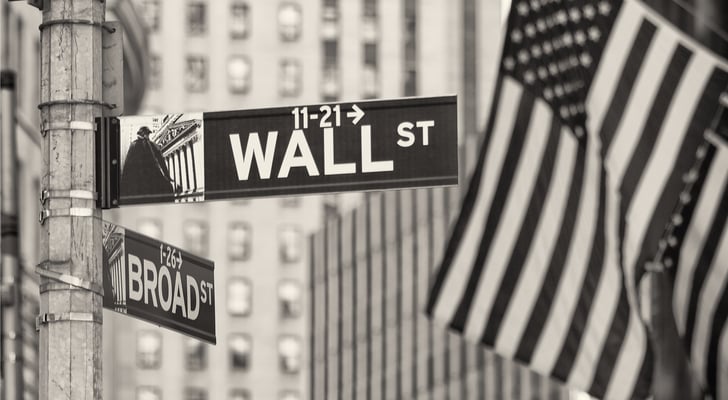The conventional wisdom is that higher interest rates are bad for stocks. That’s why — supposedly — stock markets often struggle when an interest rate hike is imminent.
But as is often the case, the conventional wisdom doesn’t match reality. Selling attributed to a rate hike may simply be profit-taking or normal market gyrations. U.S. stocks, in particular, generally do well as interest rates are rising.
In theory, there is a reason that investors should fear higher interest rates. But with rate hikes likely on the way in the second half of 2018, investors should also stay calm and realize that the correlation isn’t as stark as some analysts would argue.
Why a Rate Hike Is Bad for Stocks (in Theory)
There are several reasons why a higher federal funds rate (set by the Federal Reserve) could be bad for stocks. The first is that higher Fed rates lead to higher bank interest rates, and that in theory should slow down the economy.
The Federal Reserve raises interest rates to keep an economy from overheating. Interest rates that are too low can lead to too much borrowing and too much risk-taking, as seen in the housing crisis of 2008-09 (and earlier that decade as well).
Avoiding that outcome also requires the Fed to put on the brakes, so to speak. That’s part of why President Trump came out against those higher rates last month (though he had criticized his own treasury secretary six months earlier for saying a weak dollar was preferable).
So there’s a possibility that a rate hike can slow economic growth. But there’s also a capital allocation issue. Treasury yields are tied rather closely to the Fed funds rate. Those yields are used as the “risk-free rate” in a number of valuation methods. Higher yields — in theory — should depress demand for stocks.
If Treasury yields are above 10%, as they were in the early 1980s, equity earnings become less valuable in comparison. If yields are below 2%, as they have been for good parts of this decade, then a stock returning 6-7% on its invested capital is much more attractive.
Which Stocks Struggle With Higher Interest Rates?
That said, higher interest rates aren’t necessarily negative across the board. Banking stocks, in particular, do better in higher interest-rate environments. Indeed, the rallies since the election in stocks like Bank of America (NYSE:BAC) and JPMorgan Chase (NYSE:JPM) have come in large part due to rising rate expectations.
Companies with operations overseas can benefit as well. Higher interest rates strengthen the dollar (since global investors can get better returns). Those stronger dollars can then pay workers in Europe or Latin America, or buy commodities like oil or copper.
On the other hand, exporters tend to struggle. A company that manufactures products in the U.S. but sells overseas will have to deal with weaker foreign currencies, with no corresponding benefit to expenses.
It’s also likely that dividend stocks have some sensitivity to interest rates. Indeed, it’s not a coincidence that the consumer products space had a horrible first half of the year. Treasury yields reached 3%, which lessened the relative attractiveness of similar yields at stocks like
Procter & Gamble (NYSE:PG), Kraft Heinz (NASDAQ:KHC) and Coca-Cola (NYSE:KO).
When the Fed funds rate sat near zero — as did deposit rates — those “safe” stocks provided a haven for investors seeking some sort of return on their capital. As rates have risen, however, some of those investors have moved back into bonds.
Are Higher Interest Rates Bad?
So, in theory, higher interest rates would seem to provide a headwind to the overall U.S. equity market, all else being equal. But the point is that all else isn’t equal.
A CNBC review showed that stocks actually have performed well in rising-rate environments. And one key reason is that interest rates are usually rising as the economy is growing. Investing, like all other financial activities, isn’t done in a vacuum. There are myriad other considerations.
A strong economy boosts corporate earnings, which can help drive stock prices higher. Investors (in theory) are taking the long view and don’t expect current rate environments to last forever.
There’s even an argument that the market could add a higher risk discount to its valuation if there are fears of a repeat of 2008-09 or even 2000-01 because rates remain too low. (Indeed, many bears since the crisis have argued that near-zero interest rates were pushing equity markets up too high.)
There are also tax considerations. Trade policies matter and are affected by interest rates, too (note the long-running argument over the value of the Chinese yuan). And it’s worth remembering that it’s not as if interest rates are going from zero to 10%. Modest changes might have an impact, but they should be minor.
So if you hear a talking head arguing that the market is selling off because of rate fears, or are planning to run to cash after the next Fed funds hike, take a deep breath. The world is complicated. Finance is complicated. Investing is complicated. In theory, higher interest rates are a problem for stocks. In practice, that hasn’t been the case and may not be this time around, either.
As of this writing, Vince Martin has no positions in any securities mentioned.

